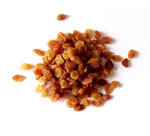Estrogen Still Best for Hot Flushes
Posted by: admin on: April 26, 2012
In Women with menopausal hot flushes no alternative treatment works best other than estrogen replacement therapy vouch a few studies.
Team@CMHF
When Kathryn DiPasqua, 51, started having bothersome menopausal hot flashes, she had a chat with her gynecologist: “I told her ‘I do not want to go on hormone replacement therapy. I’m a healthy person. I don’t want to put anything unnecessary inside my body. ”
So DiPasqua, like many women, tried other things, for four years: “I tried black cohosh, I tried soybeans; I would eat edamame by the handful,” says the Richmond, Va., college marketing specialist. She limited caffeine and alcohol and jogged daily.
The result: She kept on overheating, about a dozen times a day and two or three times a night. She says her makeup melted, her clothes were ruined, her sheets soaked — and she got just plain tired
A few months ago, she went back to her doctor and got a prescription for a hormone patch. She doesn’t love it, she says, but it works.
So the great, universally accepted hot flash cure remains elusive
Searching for alternatives
The comparison to placebos is key, because even sham treatments reduce reported hot flashes, at least temporarily, by about 50%, says Michelle Warren, medical director of the women’s health center at Columbia College of Physicians and Surgeons, New York. So it’s no wonder many women believe over-the-counter potions are effective, she says. “But when they are tested rigorously against placebos, they don’t work.”
Studies continue. For example, some researchers are looking at equol, derived from soy, which might help some women..
“It’s always good to have research on other options,” she says.
Meanwhile, doctors still recommend exercise — it improves mood and has many other health benefits — but studies have failed to show it relieves hot flashes. In fact, aerobic exercise can trigger them, Freedman says. Yoga might be better. “Paced respiration,” the slow, measured abdominal breathing used in yoga, clearly helps some women, Freedman says.
And it never hurts to keep your house cool, your clothes layered and a fan handy.
Estrogen often is a last resort
But when those things don’t work, and when women are miserable (not everyone is), most doctors will offer a prescription.
It could be for one of several non-hormonal drugs, including some antidepressants, which modestly reduce hot flashes. But the first choice — except for women with a history of breast cancer or other health conflicts — is still hormone therapy (estrogen, often combined with progestin).
It reduces hot flashes by about 90% and “it’s actually very safe, but that’s not getting across to the public,” Warren says.
Studies since 2002, when a big study linked the hormones with breast cancer, have
“given us a lot of reassurance” that risks are low for women who use them for a short time around menopause, Gass says.
Hormones still are not for every woman, but for DiPasqua, the benefits are clear.
Search
- drchasrani: Difficult to get such a data, authenticated at that. Try Times of India online library
- rakesh pore: hi, where can i get genuine information about "10 most common drugs sold in india?" i want it for a local project
- nilesh dutta: sir, Plz give detail about MBA Sports Management Thanks and Regards


Leave a Reply